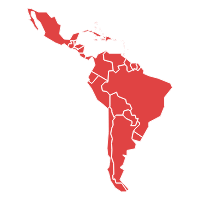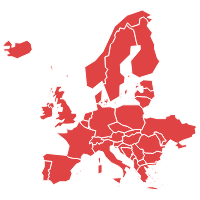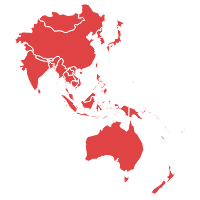| 1. Executive Summary |
| 2. Global Life Science Industry Instrumentation Services Market Introduction |
| 2.1.Global Life Science Industry Instrumentation Services Market - Taxonomy |
| 2.2.Global Life Science Industry Instrumentation Services Market - Definitions |
| 2.2.1.Service Type |
| 2.2.2.End User |
| 2.2.3.Professional |
| 2.2.4.Region |
| 3. Global Life Science Industry Instrumentation Services Market Dynamics |
| 3.1. Drivers |
| 3.2. Restraints |
| 3.3. Opportunities/Unmet Needs of the Market |
| 3.4. Trends |
| 3.5. Product Landscape |
| 3.6. New Product Launches |
| 3.7. Impact of COVID 19 on Market |
| 4. Global Life Science Industry Instrumentation Services Market Analysis, 2019 - 2023 and Forecast 2024 - 2030 |
| 4.1. Market Analysis, 2019 - 2023 and Forecast, 2024 - 2030, (Sales Value USD Million) |
| 4.2. Year-Over-Year (Y-o-Y) Growth Analysis (%) |
| 4.3. Market Opportunity Analysis |
| 5. Global Life Science Industry Instrumentation Services Market By Service Type, 2019 - 2023 and Forecast 2024 - 2030 (Sales Value USD Million) |
| 5.1. Installation Services |
| 5.1.1. Market Analysis, 2019 - 2023 and Forecast, 2024 - 2030, (Sales Value USD Million) |
| 5.1.2. Year-Over-Year (Y-o-Y) Growth Analysis (%) and Market Share Analysis (%) |
| 5.1.3. Market Opportunity Analysis |
| 5.2. Inspection/Preventive Maintenance Services |
| 5.2.1. Market Analysis, 2019 - 2023 and Forecast, 2024 - 2030, (Sales Value USD Million) |
| 5.2.2. Year-Over-Year (Y-o-Y) Growth Analysis (%) and Market Share Analysis (%) |
| 5.2.3. Market Opportunity Analysis |
| 5.3. Repairs & Upgrades |
| 5.3.1. Market Analysis, 2019 - 2023 and Forecast, 2024 - 2030, (Sales Value USD Million) |
| 5.3.2. Year-Over-Year (Y-o-Y) Growth Analysis (%) and Market Share Analysis (%) |
| 5.3.3. Market Opportunity Analysis |
| 5.4. Application Training |
| 5.4.1. Market Analysis, 2019 - 2023 and Forecast, 2024 - 2030, (Sales Value USD Million) |
| 5.4.2. Year-Over-Year (Y-o-Y) Growth Analysis (%) and Market Share Analysis (%) |
| 5.4.3. Market Opportunity Analysis |
| 5.5. Validation Support Services |
| 5.5.1. Market Analysis, 2019 - 2023 and Forecast, 2024 - 2030, (Sales Value USD Million) |
| 5.5.2. Year-Over-Year (Y-o-Y) Growth Analysis (%) and Market Share Analysis (%) |
| 5.5.3. Market Opportunity Analysis |
| 5.6. Others |
| 5.6.1. Market Analysis, 2019 - 2023 and Forecast, 2024 - 2030, (Sales Value USD Million) |
| 5.6.2. Year-Over-Year (Y-o-Y) Growth Analysis (%) and Market Share Analysis (%) |
| 5.6.3. Market Opportunity Analysis |
| 6. Global Life Science Industry Instrumentation Services Market By End User, 2019 - 2023 and Forecast 2024 - 2030 (Sales Value USD Million) |
| 6.1. Diagnostic Centers |
| 6.1.1. Market Analysis, 2019 - 2023 and Forecast, 2024 - 2030, (Sales Value USD Million) |
| 6.1.2. Year-Over-Year (Y-o-Y) Growth Analysis (%) and Market Share Analysis (%) |
| 6.1.3. Market Opportunity Analysis |
| 6.2. Research & Academic Services |
| 6.2.1. Market Analysis, 2019 - 2023 and Forecast, 2024 - 2030, (Sales Value USD Million) |
| 6.2.2. Year-Over-Year (Y-o-Y) Growth Analysis (%) and Market Share Analysis (%) |
| 6.2.3. Market Opportunity Analysis |
| 6.3. Pharmaceutical & Biotech Companies |
| 6.3.1. Market Analysis, 2019 - 2023 and Forecast, 2024 - 2030, (Sales Value USD Million) |
| 6.3.2. Year-Over-Year (Y-o-Y) Growth Analysis (%) and Market Share Analysis (%) |
| 6.3.3. Market Opportunity Analysis |
| 6.4. Others |
| 6.4.1. Market Analysis, 2019 - 2023 and Forecast, 2024 - 2030, (Sales Value USD Million) |
| 6.4.2. Year-Over-Year (Y-o-Y) Growth Analysis (%) and Market Share Analysis (%) |
| 6.4.3. Market Opportunity Analysis |
| 7. Global Life Science Industry Instrumentation Services Market By Professional, 2019 - 2023 and Forecast 2024 - 2030 (Sales Value USD Million) |
| 7.1. IO/IQ Products |
| 7.1.1. Market Analysis, 2019 - 2023 and Forecast, 2024 - 2030, (Sales Value USD Million) |
| 7.1.2. Year-Over-Year (Y-o-Y) Growth Analysis (%) and Market Share Analysis (%) |
| 7.1.3. Market Opportunity Analysis |
| 7.2. PQ Products |
| 7.2.1. Market Analysis, 2019 - 2023 and Forecast, 2024 - 2030, (Sales Value USD Million) |
| 7.2.2. Year-Over-Year (Y-o-Y) Growth Analysis (%) and Market Share Analysis (%) |
| 7.2.3. Market Opportunity Analysis |
| 7.3. Lab Consultancy Services |
| 7.3.1. Market Analysis, 2019 - 2023 and Forecast, 2024 - 2030, (Sales Value USD Million) |
| 7.3.2. Year-Over-Year (Y-o-Y) Growth Analysis (%) and Market Share Analysis (%) |
| 7.3.3. Market Opportunity Analysis |
| 7.4. LEAN/Six Sigma Services |
| 7.4.1. Market Analysis, 2019 - 2023 and Forecast, 2024 - 2030, (Sales Value USD Million) |
| 7.4.2. Year-Over-Year (Y-o-Y) Growth Analysis (%) and Market Share Analysis (%) |
| 7.4.3. Market Opportunity Analysis |
| 7.5. Educational Services |
| 7.5.1. Market Analysis, 2019 - 2023 and Forecast, 2024 - 2030, (Sales Value USD Million) |
| 7.5.2. Year-Over-Year (Y-o-Y) Growth Analysis (%) and Market Share Analysis (%) |
| 7.5.3. Market Opportunity Analysis |
| 7.6. Accredational Support Services |
| 7.6.1. Market Analysis, 2019 - 2023 and Forecast, 2024 - 2030, (Sales Value USD Million) |
| 7.6.2. Year-Over-Year (Y-o-Y) Growth Analysis (%) and Market Share Analysis (%) |
| 7.6.3. Market Opportunity Analysis |
| 8. Global Life Science Industry Instrumentation Services Market By Region, 2019 - 2023 and Forecast 2024 - 2030 (Sales Value USD Million) |
| 8.1. North America |
| 8.1.1. Market Analysis, 2019 - 2023 and Forecast, 2024 - 2030, (Sales Value USD Million) |
| 8.1.2. Year-Over-Year (Y-o-Y) Growth Analysis (%) and Market Share Analysis (%) |
| 8.1.3. Market Opportunity Analysis |
| 8.2. Europe |
| 8.2.1. Market Analysis, 2019 - 2023 and Forecast, 2024 - 2030, (Sales Value USD Million) |
| 8.2.2. Year-Over-Year (Y-o-Y) Growth Analysis (%) and Market Share Analysis (%) |
| 8.2.3. Market Opportunity Analysis |
| 8.3. Asia Pacific (APAC) |
| 8.3.1. Market Analysis, 2019 - 2023 and Forecast, 2024 - 2030, (Sales Value USD Million) |
| 8.3.2. Year-Over-Year (Y-o-Y) Growth Analysis (%) and Market Share Analysis (%) |
| 8.3.3. Market Opportunity Analysis |
| 8.4. Middle East and Africa (MEA) |
| 8.4.1. Market Analysis, 2019 - 2023 and Forecast, 2024 - 2030, (Sales Value USD Million) |
| 8.4.2. Year-Over-Year (Y-o-Y) Growth Analysis (%) and Market Share Analysis (%) |
| 8.4.3. Market Opportunity Analysis |
| 8.5. Latin America |
| 8.5.1. Market Analysis, 2019 - 2023 and Forecast, 2024 - 2030, (Sales Value USD Million) |
| 8.5.2. Year-Over-Year (Y-o-Y) Growth Analysis (%) and Market Share Analysis (%) |
| 8.5.3. Market Opportunity Analysis |
| 9. North America Life Science Industry Instrumentation Services Market ,2019 - 2023 and Forecast 2024 - 2030 (Sales Value USD Million) |
| 9.1. Service Type Analysis 2019 - 2023 and Forecast 2024 - 2030 by Sales Value USD Million, Y-o-Y Growth (%), and Market Share (%) |
| 9.1.1.Installation Services |
| 9.1.2.Inspection/Preventive Maintenance Services |
| 9.1.3.Repairs & Upgrades |
| 9.1.4.Application Training |
| 9.1.5.Validation Support Services |
| 9.1.6.Others |
| 9.3. Professional Analysis 2019 - 2023 and Forecast 2024 - 2030 by Sales Value USD Million, Y-o-Y Growth (%), and Market Share (%) |
| 9.3.1.IO/IQ Products |
| 9.3.2.PQ Products |
| 9.3.3.Lab Consultancy Services |
| 9.3.4.LEAN/Six Sigma Services |
| 9.3.5.Educational Services |
| 9.3.6.Accredational Support Services |
| 9.4. Country Analysis 2019 - 2023 and Forecast 2024 - 2030 by Sales Value USD Million, Y-o-Y Growth (%), and Market Share (%) |
| 9.4.1.United States of America (USA) |
| 9.4.2.Canada |
| 10. Europe Life Science Industry Instrumentation Services Market ,2019 - 2023 and Forecast 2024 - 2030 (Sales Value USD Million) |
| 10.1. Service Type Analysis and Forecast by Sales Value USD Million, Y-o-Y Growth (%), and Market Share (%) |
| 10.1.1.Installation Services |
| 10.1.2.Inspection/Preventive Maintenance Services |
| 10.1.3.Repairs & Upgrades |
| 10.1.4.Application Training |
| 10.1.5.Validation Support Services |
| 10.1.6.Others |
| 10.2. End User Analysis 2019 - 2023 and Forecast 2024 - 2030 by Sales Value USD Million, Y-o-Y Growth (%), and Market Share (%) |
| 10.2.1.Diagnostic Centers |
| 10.2.2.Research & Academic Services |
| 10.2.3.Pharmaceutical & Biotech Companies |
| 10.2.4.Others |
| 10.3. Professional Analysis 2019 - 2023 and Forecast 2024 - 2030 by Sales Value USD Million, Y-o-Y Growth (%), and Market Share (%) |
| 10.3.1.IO/IQ Products |
| 10.3.2.PQ Products |
| 10.3.3.Lab Consultancy Services |
| 10.3.4.LEAN/Six Sigma Services |
| 10.3.5.Educational Services |
| 10.3.6.Accredational Support Services |
| 10.4. Country Analysis 2019 - 2023 and Forecast 2024 - 2030 by Sales Value USD Million, Y-o-Y Growth (%), and Market Share (%) |
| 10.4.1.Germany |
| 10.4.2.France |
| 10.4.3.Italy |
| 10.4.4.United Kingdom (UK) |
| 10.4.5.Spain |
| 10.4.6.Rest of EU |
| 11. Asia Pacific (APAC) Life Science Industry Instrumentation Services Market ,2019 - 2023 and Forecast 2024 - 2030 (Sales Value USD Million) |
| 11.1. Service Type Analysis and Forecast by Sales Value USD Million, Y-o-Y Growth (%), and Market Share (%) |
| 11.1.1.Installation Services |
| 11.1.2.Inspection/Preventive Maintenance Services |
| 11.1.3.Repairs & Upgrades |
| 11.1.4.Application Training |
| 11.1.5.Validation Support Services |
| 11.1.6.Others |
| 11.2. End User Analysis 2019 - 2023 and Forecast 2024 - 2030 by Sales Value USD Million, Y-o-Y Growth (%), and Market Share (%) |
| 11.2.1.Diagnostic Centers |
| 11.2.2.Research & Academic Services |
| 11.2.3.Pharmaceutical & Biotech Companies |
| 11.2.4.Others |
| 11.3. Professional Analysis 2019 - 2023 and Forecast 2024 - 2030 by Sales Value USD Million, Y-o-Y Growth (%), and Market Share (%) |
| 11.3.1.IO/IQ Products |
| 11.3.2.PQ Products |
| 11.3.3.Lab Consultancy Services |
| 11.3.4.LEAN/Six Sigma Services |
| 11.3.5.Educational Services |
| 11.3.6.Accredational Support Services |
| 11.4. Country Analysis 2019 - 2023 and Forecast 2024 - 2030 by Sales Value USD Million, Y-o-Y Growth (%), and Market Share (%) |
| 11.4.1.China |
| 11.4.2.India |
| 11.4.3.Australia and New Zealand (ANZ) |
| 11.4.4.Japan |
| 11.4.5.Rest of APAC |
| 12. Middle East and Africa (MEA) Life Science Industry Instrumentation Services Market ,2019 - 2023 and Forecast 2024 - 2030 (Sales Value USD Million) |
| 12.1. Service Type Analysis and Forecast by Sales Value USD Million, Y-o-Y Growth (%), and Market Share (%) |
| 12.1.1.Installation Services |
| 12.1.2.Inspection/Preventive Maintenance Services |
| 12.1.3.Repairs & Upgrades |
| 12.1.4.Application Training |
| 12.1.5.Validation Support Services |
| 12.1.6.Others |
| 12.2. End User Analysis 2019 - 2023 and Forecast 2024 - 2030 by Sales Value USD Million, Y-o-Y Growth (%), and Market Share (%) |
| 12.2.1.Diagnostic Centers |
| 12.2.2.Research & Academic Services |
| 12.2.3.Pharmaceutical & Biotech Companies |
| 12.2.4.Others |
| 12.3. Professional Analysis 2019 - 2023 and Forecast 2024 - 2030 by Sales Value USD Million, Y-o-Y Growth (%), and Market Share (%) |
| 12.3.1.IO/IQ Products |
| 12.3.2.PQ Products |
| 12.3.3.Lab Consultancy Services |
| 12.3.4.LEAN/Six Sigma Services |
| 12.3.5.Educational Services |
| 12.3.6.Accredational Support Services |
| 12.4. Country Analysis 2019 - 2023 and Forecast 2024 - 2030 by Sales Value USD Million, Y-o-Y Growth (%), and Market Share (%) |
| 12.4.1.GCC Countries |
| 12.4.2.South Africa |
| 12.4.3.Rest of MEA |
| 13. Latin America Life Science Industry Instrumentation Services Market ,2019 - 2023 and Forecast 2024 - 2030 (Sales Value USD Million) |
| 13.1. Service Type Analysis and Forecast by Sales Value USD Million, Y-o-Y Growth (%), and Market Share (%) |
| 13.1.1.Installation Services |
| 13.1.2.Inspection/Preventive Maintenance Services |
| 13.1.3.Repairs & Upgrades |
| 13.1.4.Application Training |
| 13.1.5.Validation Support Services |
| 13.1.6.Others |
| 13.2. End User Analysis 2019 - 2023 and Forecast 2024 - 2030 by Sales Value USD Million, Y-o-Y Growth (%), and Market Share (%) |
| 13.2.1.Diagnostic Centers |
| 13.2.2.Research & Academic Services |
| 13.2.3.Pharmaceutical & Biotech Companies |
| 13.2.4.Others |
| 13.3. Professional Analysis 2019 - 2023 and Forecast 2024 - 2030 by Sales Value USD Million, Y-o-Y Growth (%), and Market Share (%) |
| 13.3.1.IO/IQ Products |
| 13.3.2.PQ Products |
| 13.3.3.Lab Consultancy Services |
| 13.3.4.LEAN/Six Sigma Services |
| 13.3.5.Educational Services |
| 13.3.6.Accredational Support Services |
| 13.4. Country Analysis 2019 - 2023 and Forecast 2024 - 2030 by Sales Value USD Million, Y-o-Y Growth (%), and Market Share (%) |
| 13.4.1.Brazil |
| 13.4.2.Mexico |
| 13.4.3.Rest of LA |
| 14. Competition Landscape |
| 14.1. Market Player Profiles (Introduction, Brand/Product Sales, Financial Analysis, Product Offerings, Key Developments, Collaborations, M & A, Strategies, and SWOT Analysis) |
| 14.2.1.Agilent |
| 14.2.2.BD Biosciences |
| 14.2.3.Beckman Coulter (Danaher) |
| 14.2.4.Bruker |
| 14.2.5.Eppendorf |
| 14.2.6.Hamilton |
| 15. Research Methodology |
| 16. Appendix and Abbreviations |






